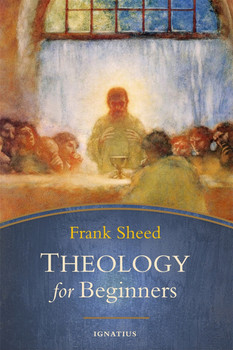Description
The official Catechism of the Catholic Church, Pocket Edition, clearly spells out the Church's beliefs on:
- Love, marriage and children
- God, creation, humanity, life, death, and the afterlife
- Mary, the Church, the saints, and the sacraments
- And much, much more
The Catechism draws on the Bible, the Mass, the sacraments, Church tradition and teaching, and the lives of the saints.
It comes with a complete index, footnotes and cross-references for a fuller understanding of every subject. Here is a positive, coherent and contemporary map for our spiritual journey towards transformation.
A "must" for every Catholic household. It's also the perfect gift for graduation, Confirmation, birthdays, or Christmas. For Mother's or Father's Day. (And a great addition to your own library to help you learn even more about the Church and be better able to explain its beliefs to others!)
4 Reviews
-
for Divine Mercy Cenacle
for Divine Mercy Cenacle
-
Received in excellent condition
Thank you
-
Catechism
I ordered The Complete and Updated Catechism of the Catholic Church Includes Modifications from the Editio Typica from Catholic Answers. I still am not sure what, if any, difference there is between what I received and the United States Catholic Catechism for Adults. I know the copyright page refers to it as the English translation of the Catechism of the Catholic Church for the United States of America © 1994. Reading the United States Conference of Catholic Bishops FAQ’s about the Catechism, I learned that this is a major catechism and should be used as a point of reference with indispensable adaptation to the multi-cultural situation of the church in the United States. ¶ 24 reads: By design, this Catechism does not set out to provide the adaptation of doctrinal presentations and catechetical methods required by the differences of culture, age, spiritual maturity, and social and ecclesial condition among all those to whom it is addressed, Such indispensable adaptations are the responsibility of particular catechisms and, even more, of those who instruct the faithful. Unfortunately, I read that mishmash as saying ‘if local tradition differs, don’t worry about it”; which renders the Catechism to no longer be an absolute point of reference. Secondly, the intended reader of the Catechism is not written for the ‘average Joe’ in the pew, but the Bishops and clergy. Unless you know the difference between judicial, juridical, jurisprudence, and justice off the top of your head, and/or use terms like ascesis, beneficence, fecundity, hemolysin, hyperdulia, mortification, proscribe, sapiential, and versicle in daily conversation; you will need a dictionary handy to grasp the full meaning of the text. My third point is that the catechism is not a list of dogmas embraced by the church. ¶88 states: The Church’s Magisterium exercises the authority it holds from Christ to the fullest extent when it defines dogmas, that is, when it proposes, in a form obligating the Christian people to an irrevocable adherence of faith, truths contained in divine Revelation or also when it proposes, in a definitive way, truths having a necessary connection with these. The catechism is intended to help man, even in his fallen state to understand truths. ¶38 reads: This is why man stands in need of being enlightened by God’s revelation, not only about those things that exceed his understanding, but also “about those religious and moral truths which of themselves are not beyond the grasp of human reason, so that even in the present condition of the human race, they can be known by all men with ease, with firm certainty and with no admixture of error.” ¶166 says “Faith is a personal act—the free response of the human person to the initiative of God who reveals himself.” But authentic interpretation, including the ease and certainty mentioned above, per ¶85 has been entrusted to the bishops in communion with the successor of Peter, the Bishop of Rome. While other Christian denominations encourage individual responsibility in reading and interpreting scripture under the purview of the Holy Spirit, the Catechism makes it clear that the Catholic Church reserves all such interpretation to itself. The church provides the scriptures, the interpretations, the traditions, the words, the definitions, the context, and all aspects of how to read and interpret scripture. The church has also made it clear that exact wording, sequences, actions must be enforced, what I consider to be formulas. ¶170 specifically states the church does “not believe in formulas, but in those realities they express, which faith allows us to touch.” All in all, my reading of the Catechism was very informative. There are numerous wonderful quotes in the Catechism and the explanation of how tradition is intrinsic to the concept of scripture. I was somewhat taken aback by several paragraphs that place the church in the place of Christ. For instance, ¶868 “The Church is catholic: she proclaims the fullness of the faith. She bears in herself and administers the totality of the means of salvation.”
-
Pocket edition Catechism
This book is well written and helped me gain a deeper understanding of my faith
















